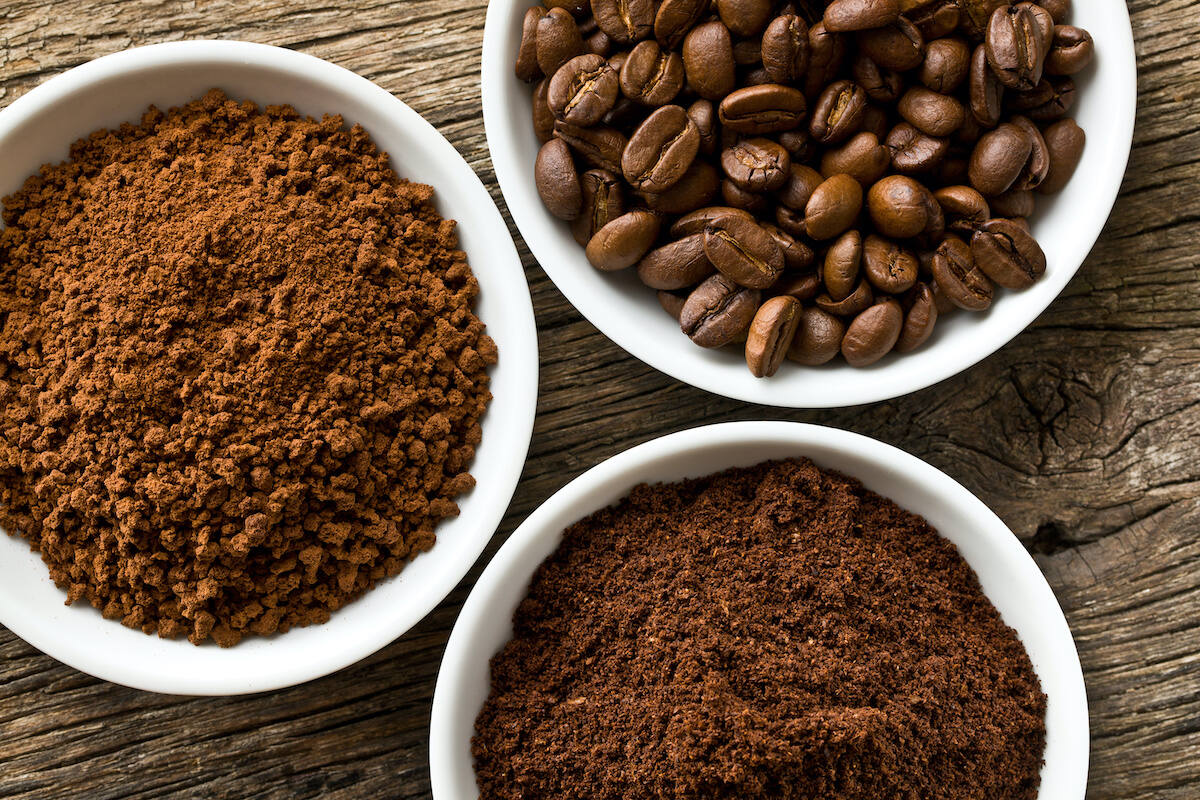

Articles
How To Store Fresh Ground Coffee
Modified: January 19, 2024
Learn the best techniques for storing fresh ground coffee to ensure maximum flavor and freshness. Check out our informative articles for expert tips and advice.
(Many of the links in this article redirect to a specific reviewed product. Your purchase of these products through affiliate links helps to generate commission for Storables.com, at no extra cost. Learn more)
Introduction
When it comes to enjoying a delicious cup of coffee, nothing beats the aroma and flavor of freshly ground beans. The process of grinding coffee beans immediately before brewing allows for the release of essential oils and flavors, resulting in a more robust and flavorful cup of joe. However, to truly savor the freshness of ground coffee, proper storage is essential. In this article, we will explore the significance of storing fresh ground coffee, the factors that affect its freshness, the best storage containers, and helpful tips to ensure your coffee stays at its best.
Storing fresh ground coffee properly not only preserves its aroma and flavor, but it also ensures that you extract the best possible cup of coffee every time. Oxygen, light, moisture, and heat are the main elements that can quickly degrade the quality of ground coffee. When exposed to these factors, coffee grounds can become stale, losing their aroma and flavor.
To maintain the freshness of your coffee grounds, it is crucial to protect them from these elements. The type of storage container you use plays a significant role in preserving the quality of your coffee. Opting for an airtight container with minimal exposure to light is essential. Let’s explore in detail the factors that affect the freshness of ground coffee and the best storage containers to keep it at its peak.
Key Takeaways:
- Preserve the Freshness: Properly storing fresh ground coffee in airtight, opaque containers shields it from oxygen, light, and moisture, preserving its aroma and flavor for a delightful coffee experience.
- Avoid Common Mistakes: Steer clear of freezing coffee, using improper containers, and exposing coffee to light and heat to maintain the flavors and aromas of your ground coffee for as long as possible.
Read more: How To Store Ground Coffee
Why Storing Fresh Ground Coffee Matters
Storing fresh ground coffee properly is vital because it directly impacts the quality and flavor of your cup of coffee. Here are a few reasons why storing fresh ground coffee matters:
- Preserving Aroma and Flavor: Ground coffee contains volatile compounds that contribute to its unique aroma and flavor. When exposed to oxygen, these compounds begin to oxidize, leading to a loss of aroma and flavor. Proper storage helps preserve these volatile compounds, resulting in a more flavorful and aromatic cup of coffee.
- Minimizing Oxidation: Oxygen is the primary enemy of freshness when it comes to coffee. When coffee grounds come into contact with air, oxidation occurs, which degrades the quality of the coffee. Storing fresh ground coffee in an airtight container helps minimize oxidation, prolonging its freshness.
- Avoiding Moisture Absorption: Ground coffee readily absorbs moisture from the surrounding environment, which can lead to flavor distortion and the growth of mold and bacteria. Proper storage in a dry and airtight container helps prevent moisture absorption and ensures the quality and safety of your coffee.
- Protection from Light: Exposure to light can also impact the freshness of ground coffee. Ultraviolet rays can accelerate the oxidation process and result in the deterioration of both aroma and flavor. Storing fresh ground coffee in a container that is opaque or has UV protection helps shield it from harmful light.
By giving due importance to storing fresh ground coffee, you create an opportunity to enjoy the full flavors and aromas that coffee beans have to offer. Not only will your taste buds thank you, but your overall coffee-drinking experience will be elevated to a whole new level.
Factors Affecting the Freshness of Ground Coffee
Several factors can significantly impact the freshness of ground coffee. Being aware of these factors will help you understand the importance of proper storage and ensure that you enjoy the best possible cup of coffee. Here are the key factors influencing the freshness of ground coffee:
- Oxygen: Oxygen is the biggest culprit when it comes to coffee degradation. Once coffee beans are ground, they have a larger surface area exposed to oxygen, leading to oxidation and the loss of essential oils and flavors. Preventing oxygen exposure through proper storage is crucial.
- Light: Light, especially ultraviolet (UV) rays, can cause chemical reactions within the coffee beans, leading to the deterioration of both aroma and flavor. This is why it’s important to store fresh ground coffee in an opaque container or dark place to shield it from light exposure.
- Moisture: Coffee is hygroscopic, which means it readily absorbs moisture from the air. When coffee grounds become damp, they can quickly become stale, lose their aroma, and even develop mold. Storing fresh ground coffee in a dry and airtight container is essential to prevent moisture absorption.
- Heat: Heat can accelerate the staling process of coffee by breaking down the volatile compounds responsible for its flavors and aromas. It is important to store fresh ground coffee away from direct heat sources, such as stovetops or sunny countertops.
- Time: Time is another factor that affects the freshness of ground coffee. Coffee begins to lose flavor and aroma as soon as it is ground. It is best to grind coffee just before brewing to maximize freshness. If you need to store coffee grounds, ensure proper storage to minimize flavor degradation over time.
By understanding and mitigating these factors, you can greatly extend the freshness and quality of your ground coffee. Implementing proper storage techniques will not only enhance your coffee-drinking experience but also ensure that you consistently enjoy the flavors and aromas that freshly ground coffee has to offer.
Best Storage Containers for Fresh Ground Coffee
Choosing the right storage container for fresh ground coffee is crucial to maintain its freshness and flavor. Here are some recommended options for storing your coffee grounds:
- Airtight Canisters: Opt for airtight canisters made of stainless steel, ceramic, or opaque glass. These containers prevent oxygen from entering and moisture from seeping in, ensuring the longevity of your coffee grounds. Look for canisters with a secure lid and airtight seal for maximum freshness.
- Vacuum-Sealed Containers: Vacuum-sealed containers are highly effective in removing excess air, preventing oxidation, and maintaining the freshness of ground coffee. These containers create a vacuum seal by pumping out the air before sealing, ensuring minimal oxygen exposure.
- Opaque and UV-Protected Containers: Light, especially UV rays, can quickly degrade the quality of ground coffee beans. Opt for containers that are opaque or have UV protection to shield your coffee from light exposure. This will help preserve the flavors and aromas of your coffee grounds.
- Mason Jars: Mason jars make excellent storage containers for ground coffee. They are airtight, affordable, and widely available. Look for jars with rubber gaskets and secure lids to ensure the coffee stays fresh. It’s best to choose jars that have been tinted or wrapped in an opaque material to minimize light exposure.
- Reusable Coffee Bags: If you’re looking for a more eco-friendly option, consider using reusable coffee bags. These bags usually come with airtight seals and can be used multiple times to store your coffee grounds. Look for bags made from materials such as foil or heavy-duty food-grade plastic to provide proper protection.
Remember, regardless of the storage container you choose, it’s important to handle the coffee grounds with care. Avoid exposing them to excessive heat, light, moisture, or oxygen. Store the container in a cool, dark place, such as a pantry or cupboard away from any heat sources. By selecting the right storage container and following proper storage practices, you can preserve the freshness and flavor of your ground coffee, ensuring that every brew is as flavorful as possible.
Tips for Storing Fresh Ground Coffee Properly
To ensure the freshness and flavor of your ground coffee, follow these essential tips for proper storage:
- Choose the Right Container: Select an airtight container that is opaque or has UV protection. This will prevent oxygen, light, and moisture from degrading the quality of your coffee grounds.
- Use Whole Bean Coffee When Possible: For the best flavor and freshness, consider purchasing whole bean coffee and grinding it just before brewing. This minimizes the surface area exposed to oxygen and preserves more of the volatile compounds that contribute to the aroma and flavor.
- Avoid Freezing Coffee: While some may suggest freezing coffee grounds, it is not recommended as it can lead to moisture accumulation and flavor loss. Instead, store your coffee at room temperature in a suitable container.
- Keep Coffee Away from Heat: It’s important to store coffee grounds away from heat sources like stovetops, ovens, or direct sunlight. Elevated temperatures can accelerate the staling process and result in a loss of flavors and aromas.
- Buy Smaller Quantities: It’s better to purchase smaller quantities of coffee more frequently rather than a large amount that may sit on your shelf for an extended period. This way, you can ensure that you always have fresh coffee on hand.
- Avoid Grinding Excessively: To minimize exposure to oxygen, only grind the amount of coffee you need for immediate use. Ground coffee starts to lose flavor quickly, so grinding as you go helps maintain freshness.
- Store in a Cool, Dark Place: Store your coffee container in a cool, dark cupboard or pantry, away from any heat or light sources. The cool temperature and darkness will help preserve the flavors and aroma of your coffee grounds.
- Keep the Container Dry: Moisture is detrimental to coffee freshness. Ensure that your storage container is completely dry before adding the coffee grounds. Avoid storing coffee in a humid environment, such as near a sink or refrigerator.
- Do Not Refrigerate: Contrary to popular belief, refrigerating coffee can introduce moisture and odors that can affect the flavor. It is best to store coffee at room temperature in a suitable container.
By following these tips, you can extend the freshness and quality of your ground coffee, ultimately resulting in a more enjoyable and flavorful cup of coffee every time you brew.
Store fresh ground coffee in an airtight container at room temperature, away from light, heat, and moisture. Avoid storing it in the fridge or freezer, as it can absorb odors and moisture.
Read more: How To Store Coffee Grounds
Common Mistakes to Avoid When Storing Fresh Ground Coffee
Properly storing fresh ground coffee is essential for preserving its freshness and flavor. However, there are several common mistakes that people make when it comes to coffee storage. By avoiding these mistakes, you can ensure that your coffee grounds stay at their best. Here are the most common mistakes to avoid:
- Storing Coffee in the Freezer: While it may seem like freezing coffee would keep it fresh, it can actually lead to moisture absorption and flavor loss. Avoid storing your coffee grounds in the freezer, as it can result in a subpar brewing experience.
- Using Improper Containers: The choice of storage container is crucial. Avoid using containers that are not airtight or have poor seals. This can allow oxygen and moisture to penetrate the container, leading to stale coffee grounds. Opt for containers specifically designed for coffee storage.
- Exposing Coffee to Light: Light, especially UV rays, can degrade the quality of coffee grounds. Avoid storing your coffee in clear or transparent containers that allow light to penetrate. Instead, opt for opaque or UV-protected containers to protect your coffee from light exposure.
- Storing Coffee Near Heat Sources: Heat is another enemy of coffee freshness. Placing your coffee container near heat sources like stovetops, ovens, or direct sunlight can accelerate the staling process and negatively affect the flavors and aromas. Keep your coffee away from such heat sources.
- Buying in Bulk: It may be tempting to stock up on a large quantity of coffee, especially if you find a good deal. However, buying excessive amounts can result in stale coffee if it isn’t used up quickly. It’s best to purchase coffee in smaller quantities to ensure freshness and optimal flavor.
- Grinding Coffee Too Far in Advance: Grinding coffee just before brewing ensures the freshest possible flavors. Avoid grinding coffee too far in advance, as the grounds will quickly lose their freshness and aroma. Aim to grind your coffee right before your brewing ritual for the best flavor.
- Ignoring Temperature and Humidity: Coffee is sensitive to temperature and humidity. Storing coffee in a humid environment, such as near a sink or refrigerator, can lead to moisture absorption and degradation of flavors. Store your coffee in a cool, dry place to maintain its quality.
- Not Properly Sealing the Container: Even if you use an airtight container, make sure you properly seal it after each use. Leaving the container open or not sealing it tightly allows oxygen and moisture to enter, leading to stale coffee grounds. Seal the container tightly to maintain freshness.
- Using Coffee Long Past Its Freshness Date: While ground coffee typically has a recommended freshness date, it’s important to note that it can start deteriorating soon after grinding. Don’t rely solely on the date on the package. Instead, focus on proper storage practices to keep your coffee fresh for as long as possible.
By avoiding these common mistakes, you can maintain the freshness, flavors, and aromas of your ground coffee, allowing you to savor a truly exceptional cup of coffee with each brew.
How Long Can Fresh Ground Coffee Be Stored?
The shelf life of fresh ground coffee depends on several factors, including the quality of the beans, the roast level, the storage conditions, and personal preferences. While coffee’s flavors and aromas are at their peak shortly after grinding, you can still enjoy a decent cup of coffee for a period of time if stored properly. Here’s a general guideline on how long fresh ground coffee can be stored:
- Whole Bean vs. Ground Coffee: Whole bean coffee has a longer shelf life compared to ground coffee. This is because grinding coffee increases the surface area exposed to oxygen, leading to faster oxidation and flavor degradation. For the best flavor and freshness, it’s recommended to grind coffee just before brewing.
- Critical Factors: Several factors affect the storage duration of ground coffee, including exposure to oxygen, light, heat, and moisture. To extend the freshness, it’s crucial to store coffee in an airtight container, away from direct sunlight, heat sources, and humid environments.
- Freshness Date: Ground coffee usually comes with a recommended or best-by date on the packaging. While this date provides some guidance, it’s important to note that coffee can begin to stale shortly after grinding. Proper storage practices can help maintain freshness beyond the suggested date.
- Trial and Error: The best way to determine how long your freshly ground coffee can be stored is through trial and error. Experiment with different storage techniques, monitor the flavors and aromas over time, and adjust accordingly to meet your personal taste preferences.
- Roast Level: The roast level of coffee can also impact its shelf life. Lighter roasts tend to have more delicate flavors and higher acidity, which can degrade faster than darker roasts. Generally, lighter roasts are best consumed within a shorter time frame after grinding.
As a general rule of thumb, if you store your ground coffee properly, you can expect it to maintain good flavor for up to two weeks. However, it’s important to note that the flavors may start to degrade gradually over time, resulting in a less vibrant and aromatic cup of coffee. To enjoy the freshest flavors, it’s highly recommended to grind coffee just before brewing.
Remember, coffee is highly subjective, and everyone has different taste preferences. It’s essential to experiment and find what works best for you. By paying attention to storage conditions and freshness, you can ensure that your coffee remains enjoyable for as long as possible.
How to Properly Grind Coffee Beans for Storage
Properly grinding coffee beans is crucial for achieving optimal flavor and freshness, especially when you plan to store the grounds. Here are some steps to follow to ensure you grind your coffee beans correctly for storage:
- Choose the Right Grinder: Invest in a quality burr grinder, as it provides a more consistent grind size compared to blade grinders. Consistency is key for extracting the best flavors from your coffee beans.
- Grind Size: Determine the ideal grind size based on your brewing method. Different brewing methods require different grind sizes, ranging from coarse for French press to fine for espresso. Be sure to adjust the grinder settings accordingly.
- Weigh the Coffee Beans: Use a scale to weigh the appropriate amount of coffee beans before grinding. This ensures consistency in the brewing process and allows you to control the strength of your coffee.
- Grind Just Before Brewing: To maintain the freshness and flavor, it’s best to grind your coffee beans just before you plan to brew. The moment coffee beans are ground, they begin to oxidize and lose their aroma and flavors. Grinding right before brewing minimizes this oxidation process.
- Avoid Excessive Grinding: Only grind the amount of coffee you need for immediate use. Excessively grinding coffee beans and storing the grounds can lead to flavor degradation. It’s better to grind in smaller batches for a fresher taste.
- Choose the Right Grind Coarseness: The appropriate grind coarseness depends on your preferred brewing method. For example, a coarse grind works well for French press, while a medium grind is suitable for pour-over and drip coffee makers. Espresso requires a fine grind.
- Store the Grounds Properly: Once you have ground your coffee beans, transfer the grounds immediately into an airtight container. Minimize their exposure to oxygen by quickly sealing the container. Follow the proper storage techniques mentioned earlier to maintain freshness.
- Label and Date the Container: To keep track of the freshness of your ground coffee, label and date the storage container. This will help you know when the coffee grounds were prepared and when they need to be used by for the best flavor.
By following these steps, you can ensure that your coffee beans are properly ground for storage, preserving their freshness and flavors until you are ready to brew your next cup of coffee.
Conclusion
Properly storing fresh ground coffee is essential for preserving its flavor, aroma, and overall quality. By understanding the factors that affect coffee freshness and following best storage practices, you can ensure that each cup of coffee is a delightful experience.
Remember to choose the right storage container that is airtight, opaque or UV-protected, and resistant to moisture. This will shield your coffee grounds from oxygen, light, humidity, and heat, which can all negatively impact their freshness.
Avoid common mistakes such as freezing coffee, using improper containers, exposing coffee to light and heat, buying in bulk without considering freshness, and grinding coffee too far in advance. By sidestepping these mistakes, you can extend the shelf life and maintain the flavors and aromas of your coffee for as long as possible.
When grinding coffee beans for storage, focus on using a quality burr grinder, selecting the appropriate grind size for your chosen brewing method, and grinding just before brewing. This will ensure that the coffee grounds are at their freshest and most flavorful state.
Lastly, be mindful of the freshness of your ground coffee. While it varies depending on many factors, it is recommended to use ground coffee within two weeks of grinding for the best flavor. Adjust storage practices and quantities accordingly to maintain optimal freshness.
By implementing these storage guidelines, you can enjoy the full potential of your freshly ground coffee with every brew. Whether you prefer a rich pour-over, an invigorating espresso shot, or a comforting French press, proper storage of fresh ground coffee will elevate your coffee-drinking experience. So go ahead, savor the enticing aromas and flavors of your favorite coffee, and unlock a world of taste sensations in every cup.
Frequently Asked Questions about How To Store Fresh Ground Coffee
Was this page helpful?
At Storables.com, we guarantee accurate and reliable information. Our content, validated by Expert Board Contributors, is crafted following stringent Editorial Policies. We're committed to providing you with well-researched, expert-backed insights for all your informational needs.
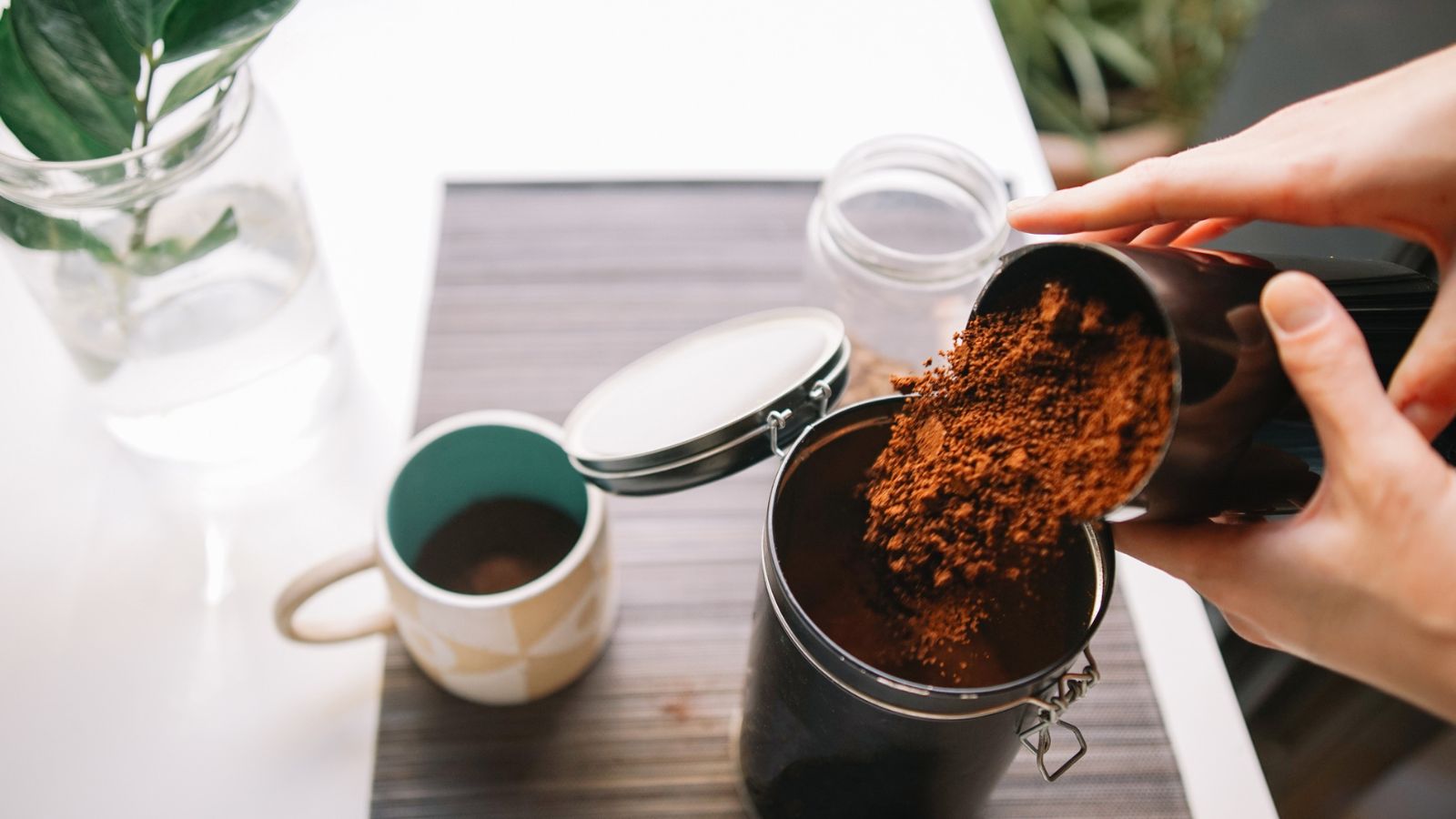
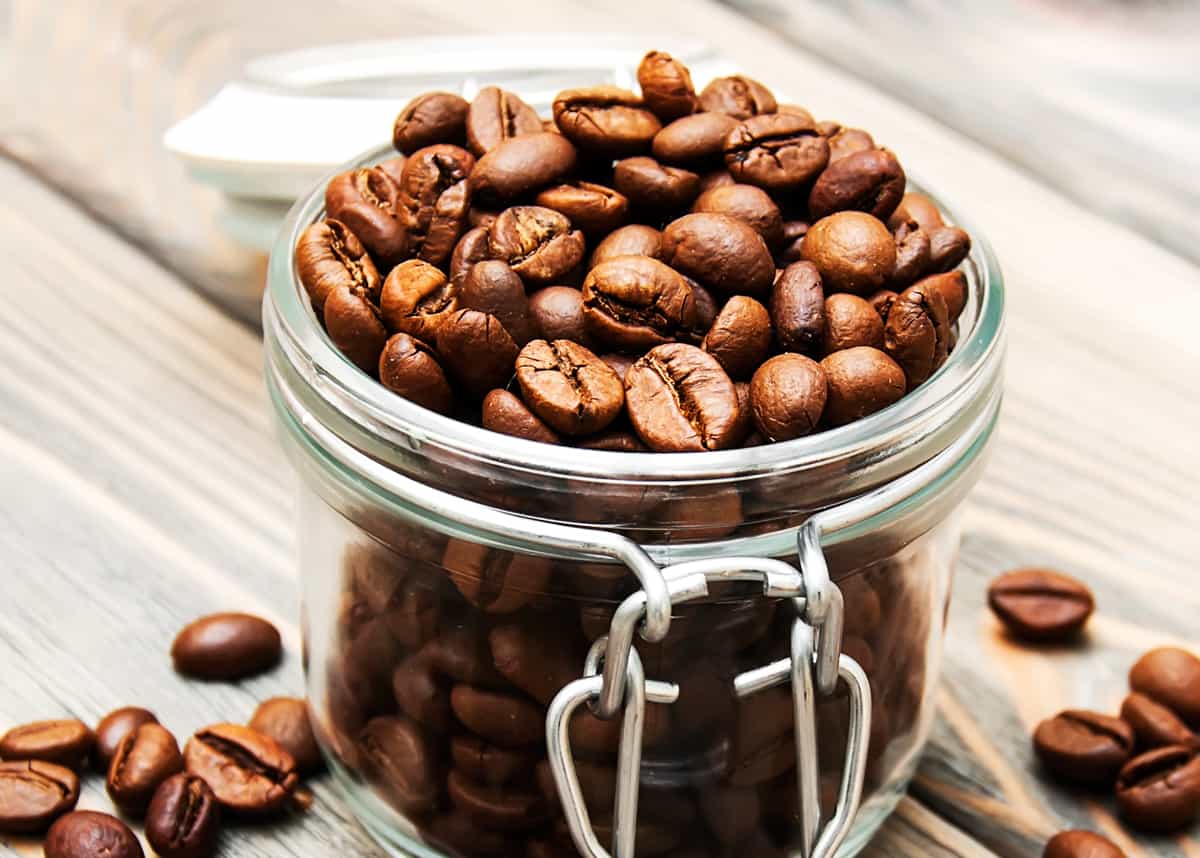
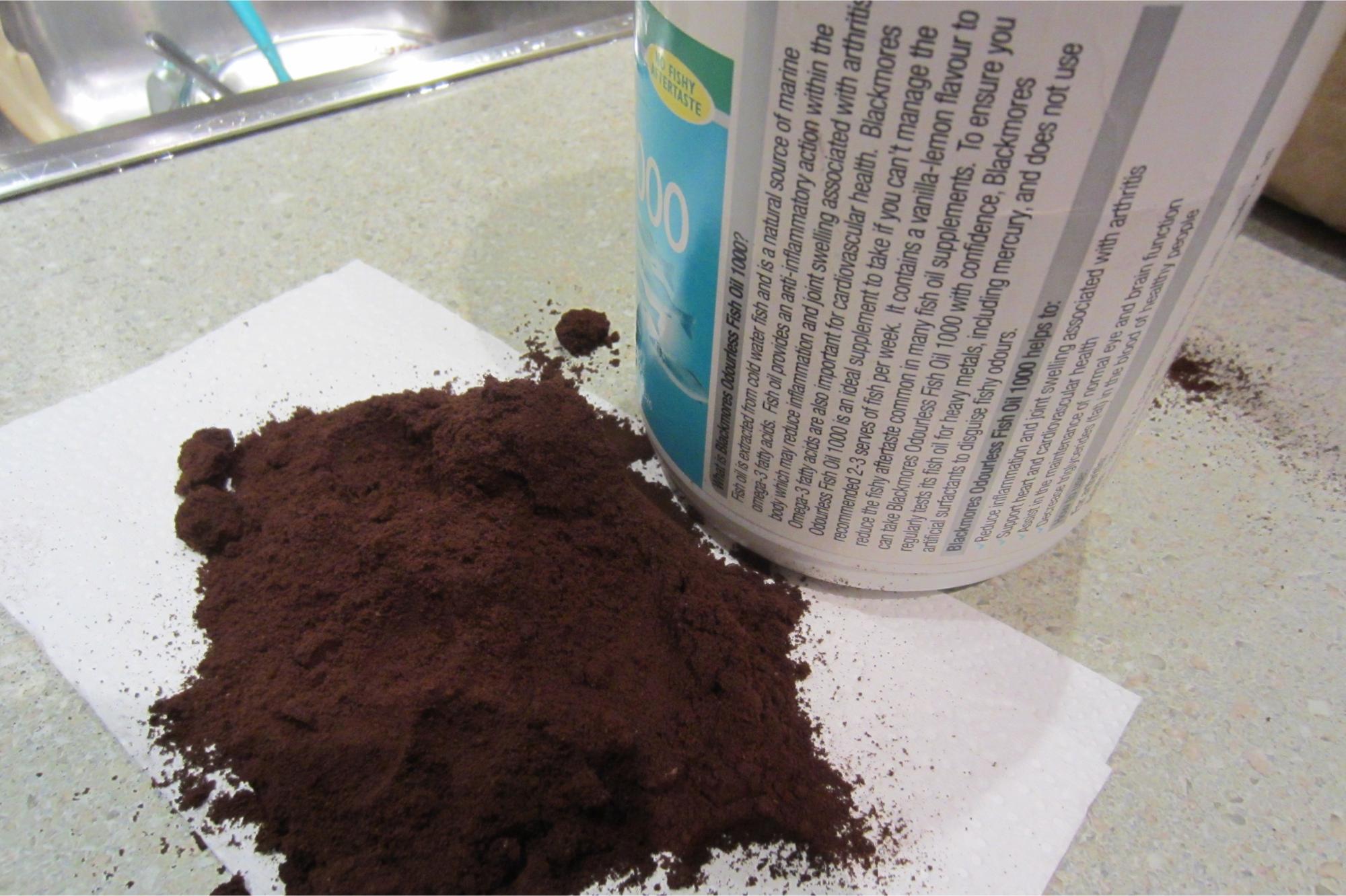
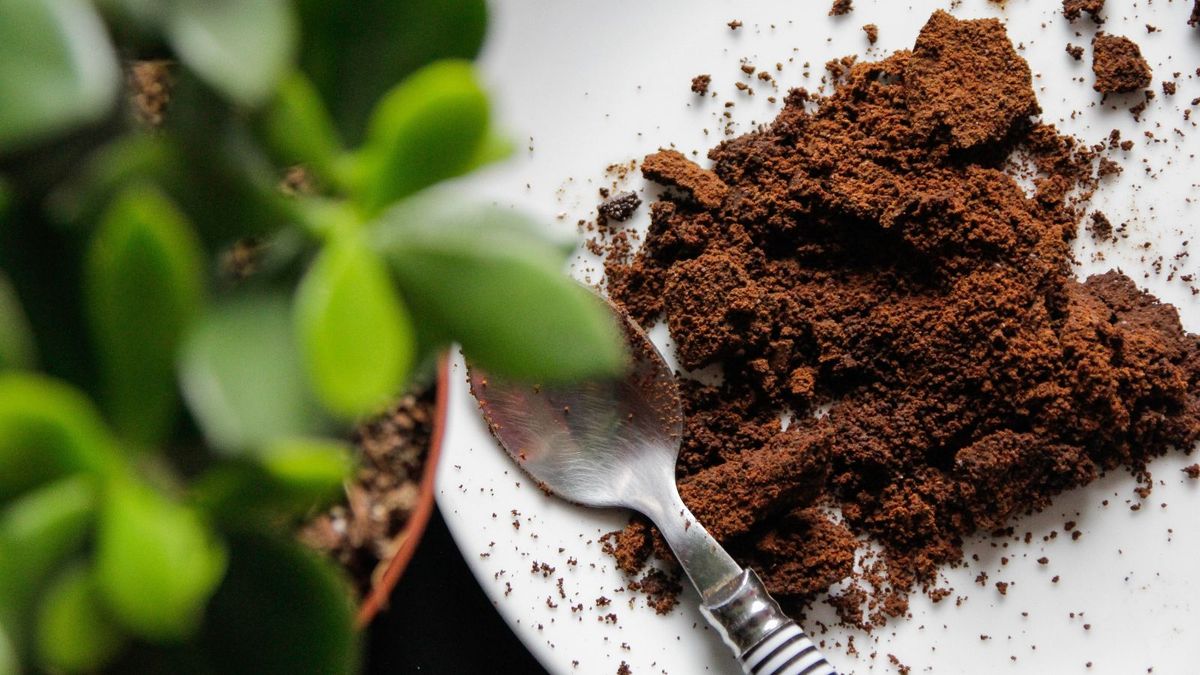
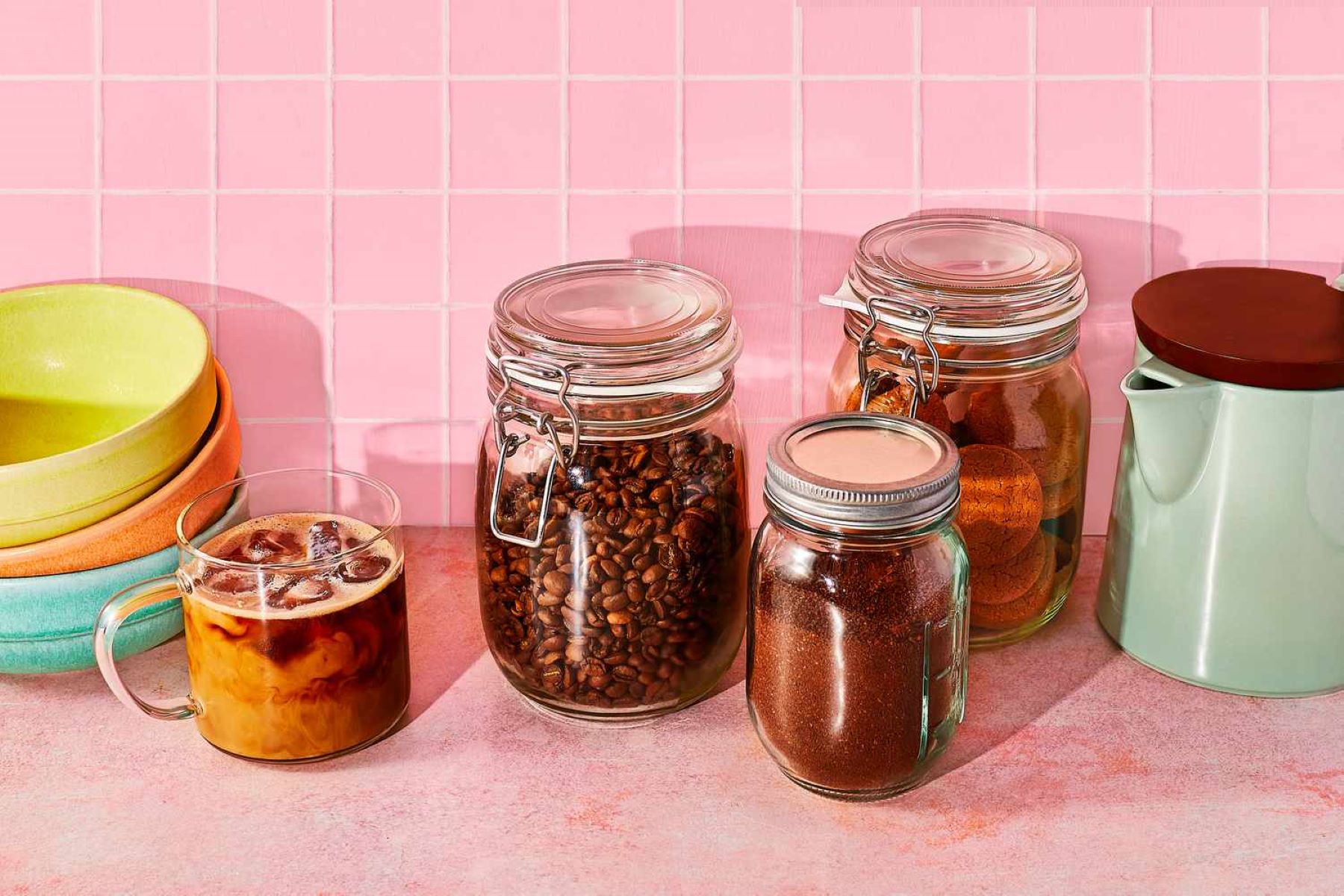
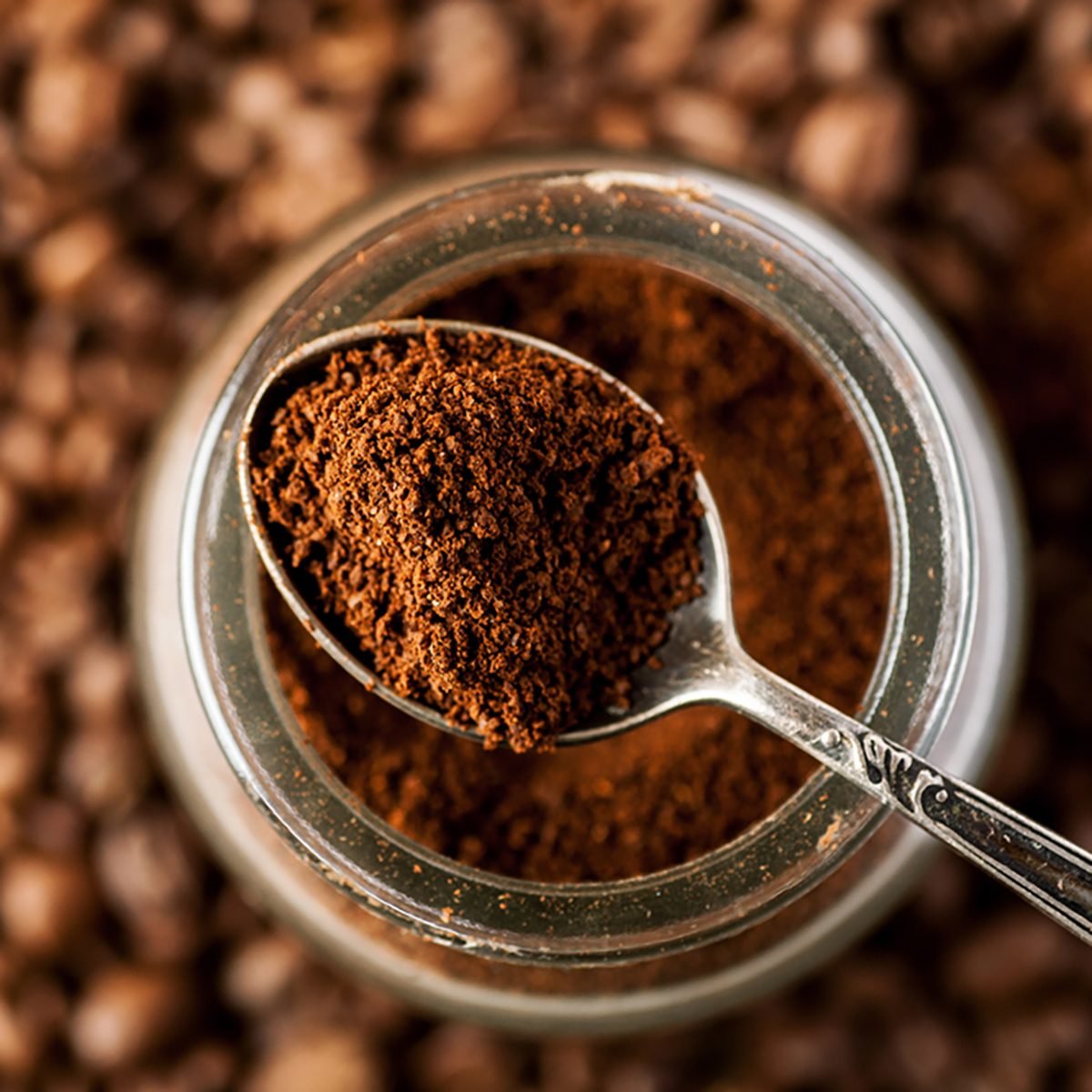
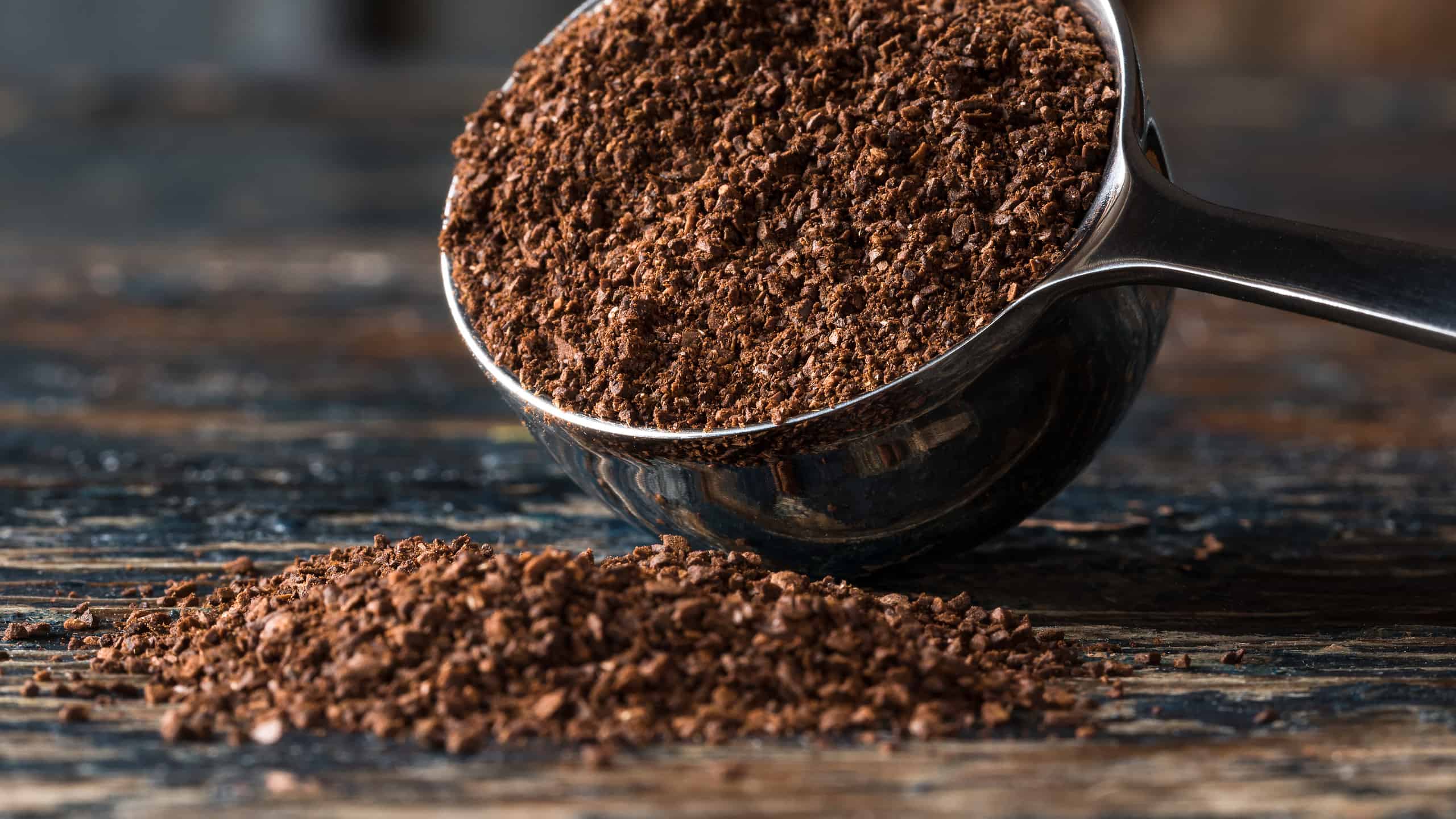
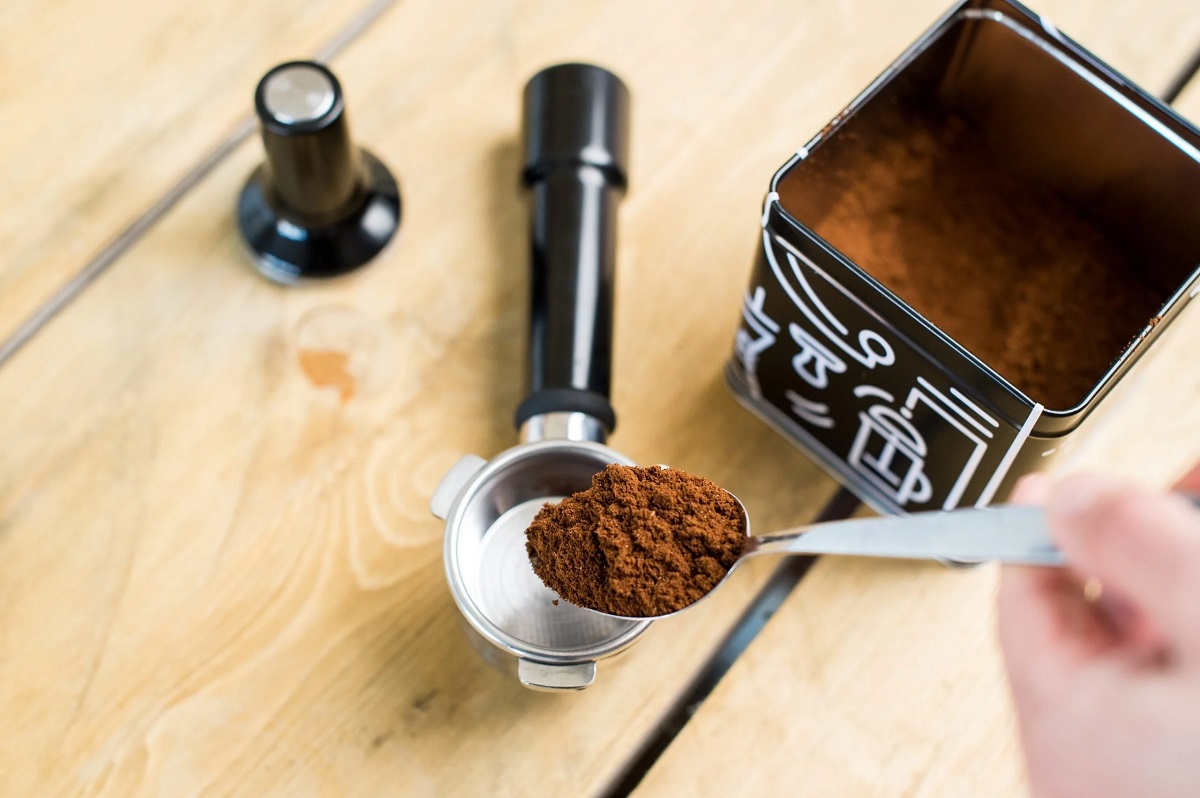
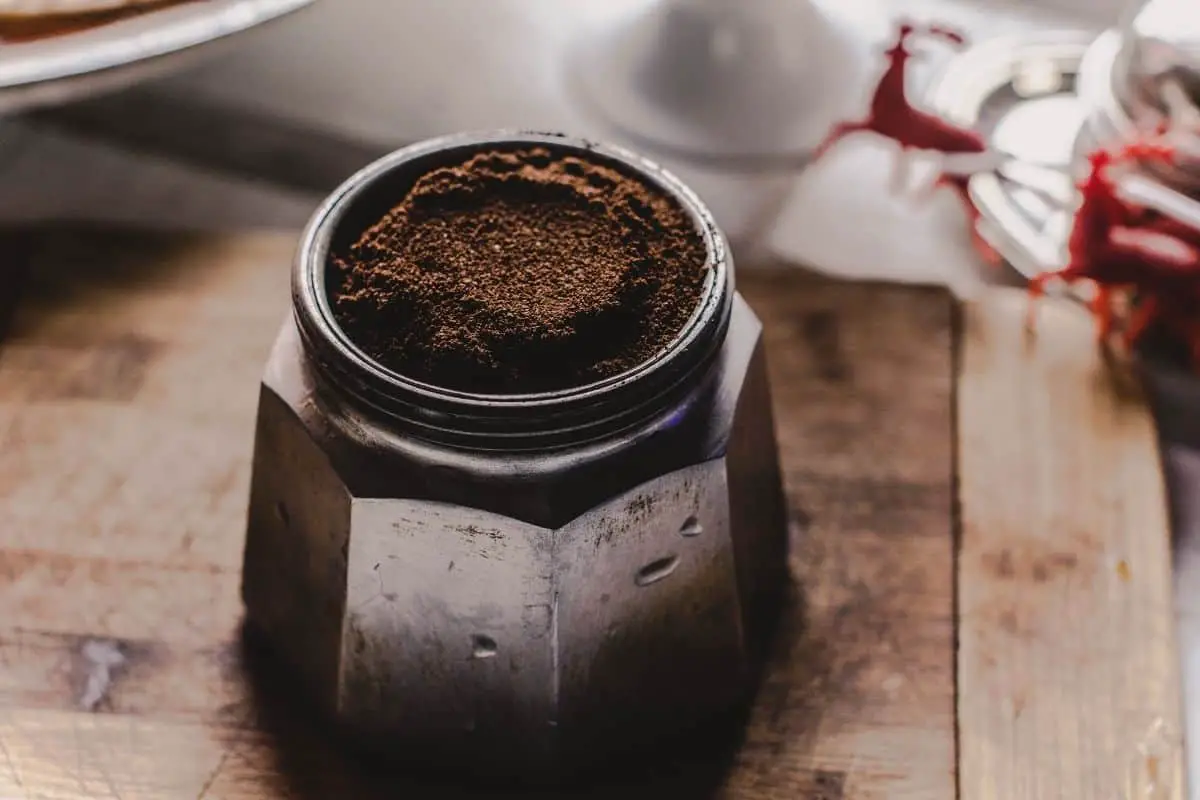
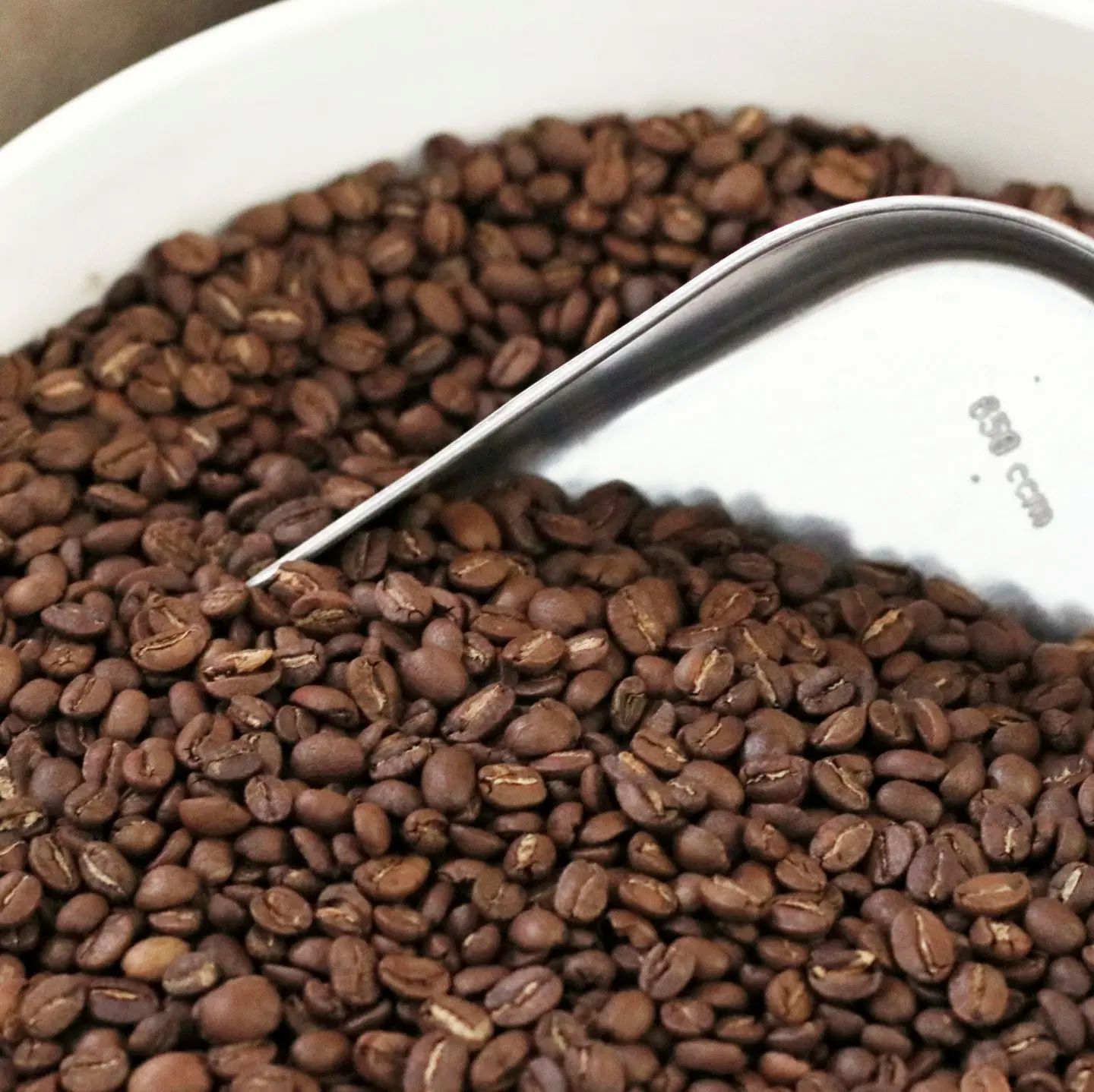
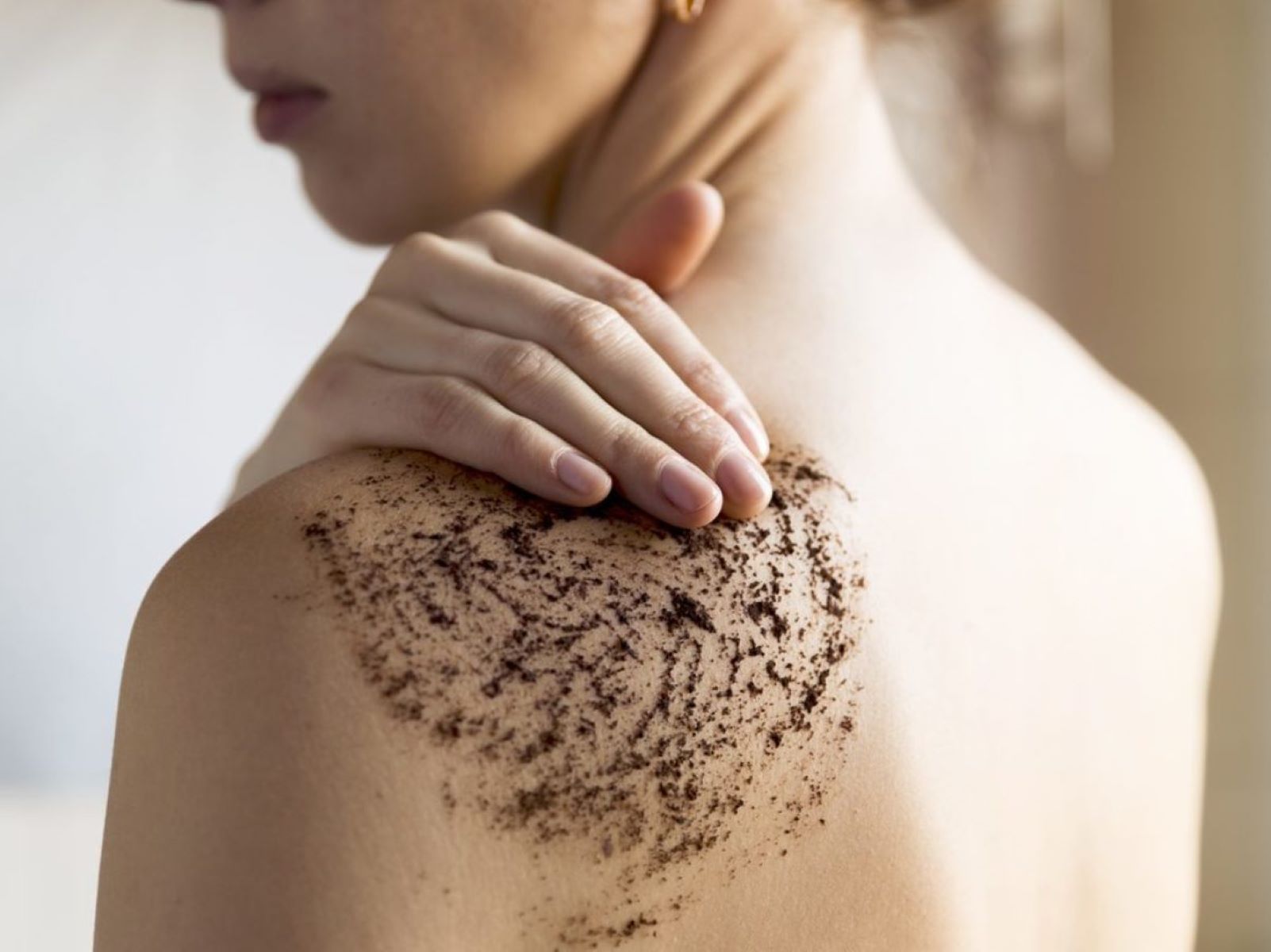
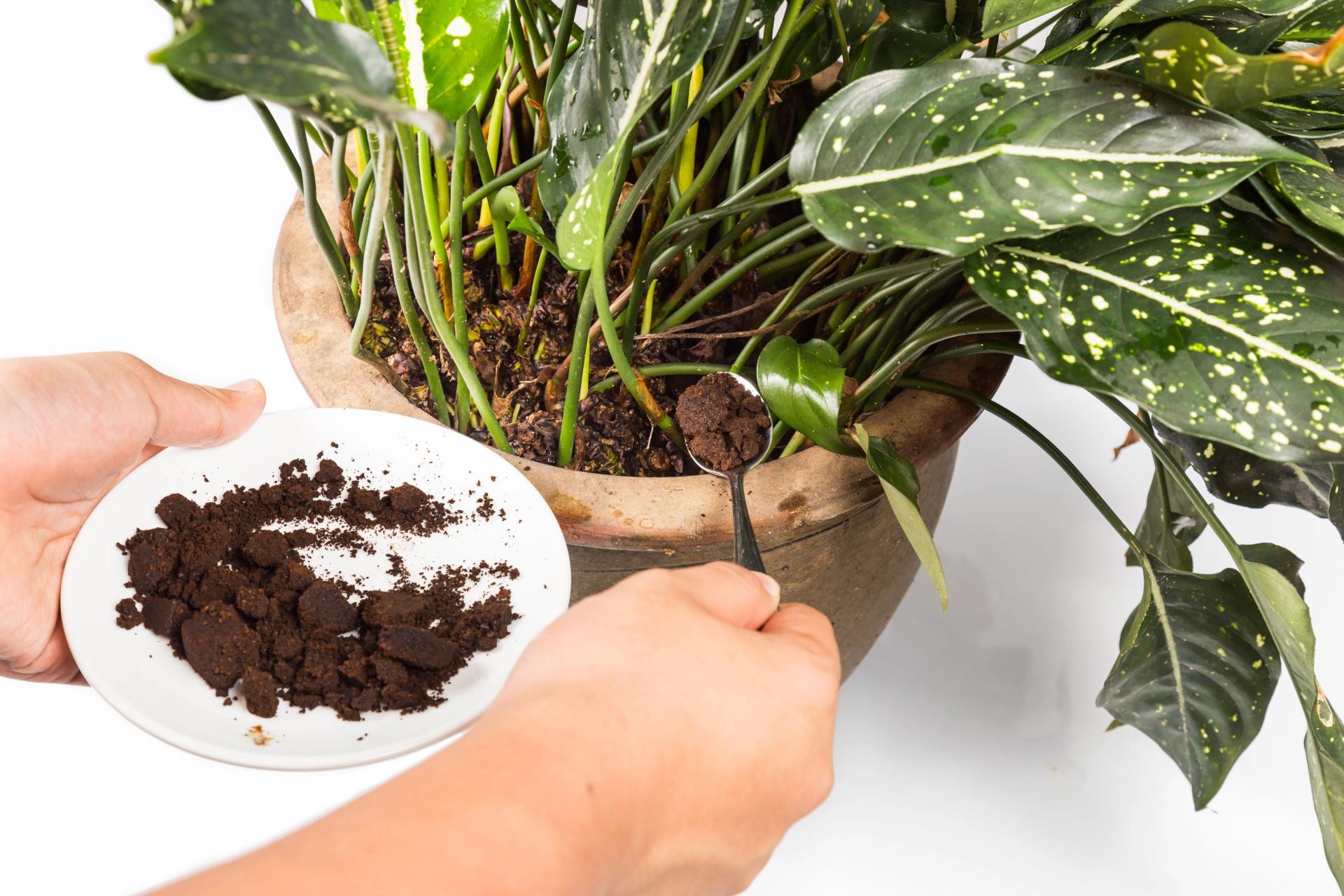
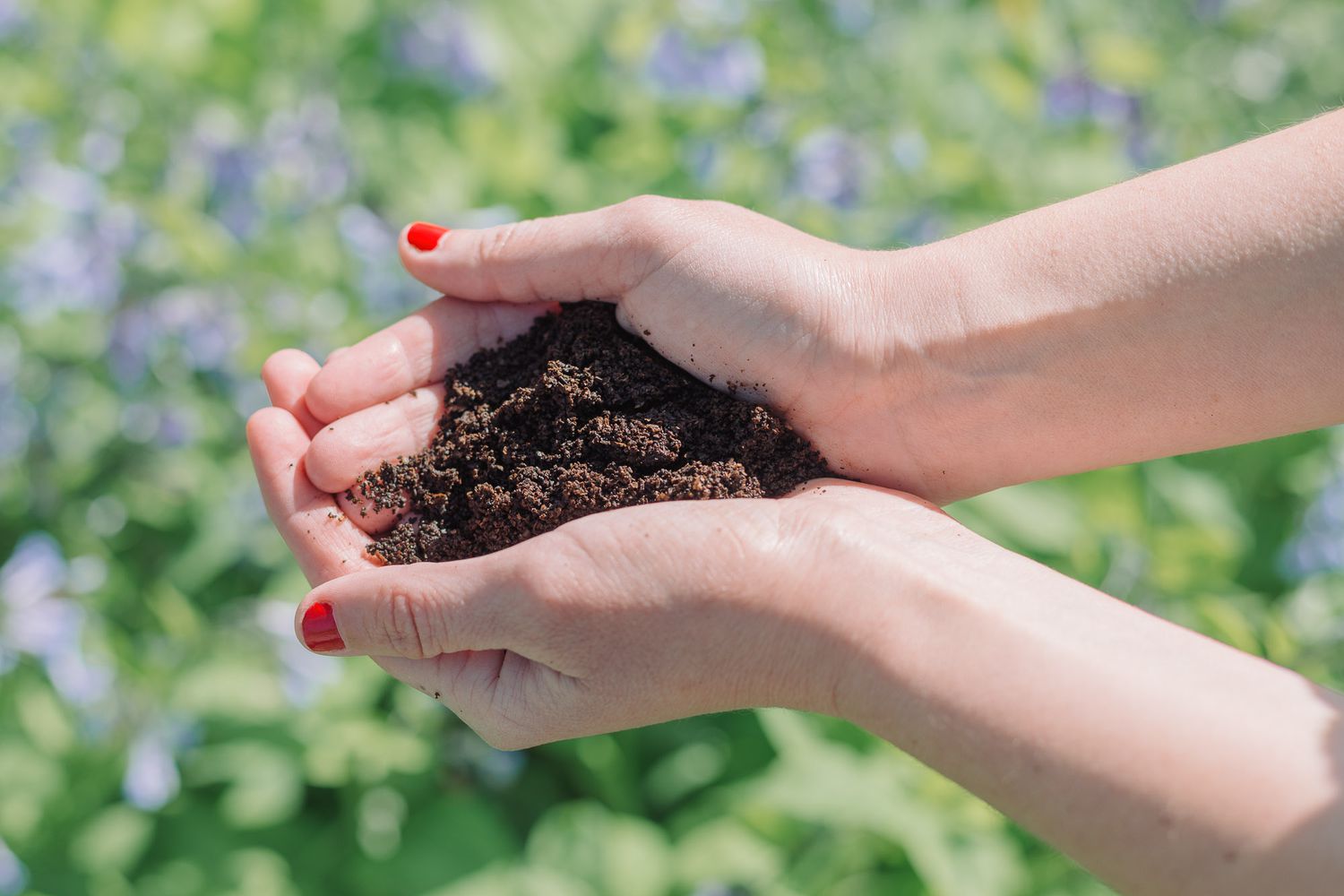
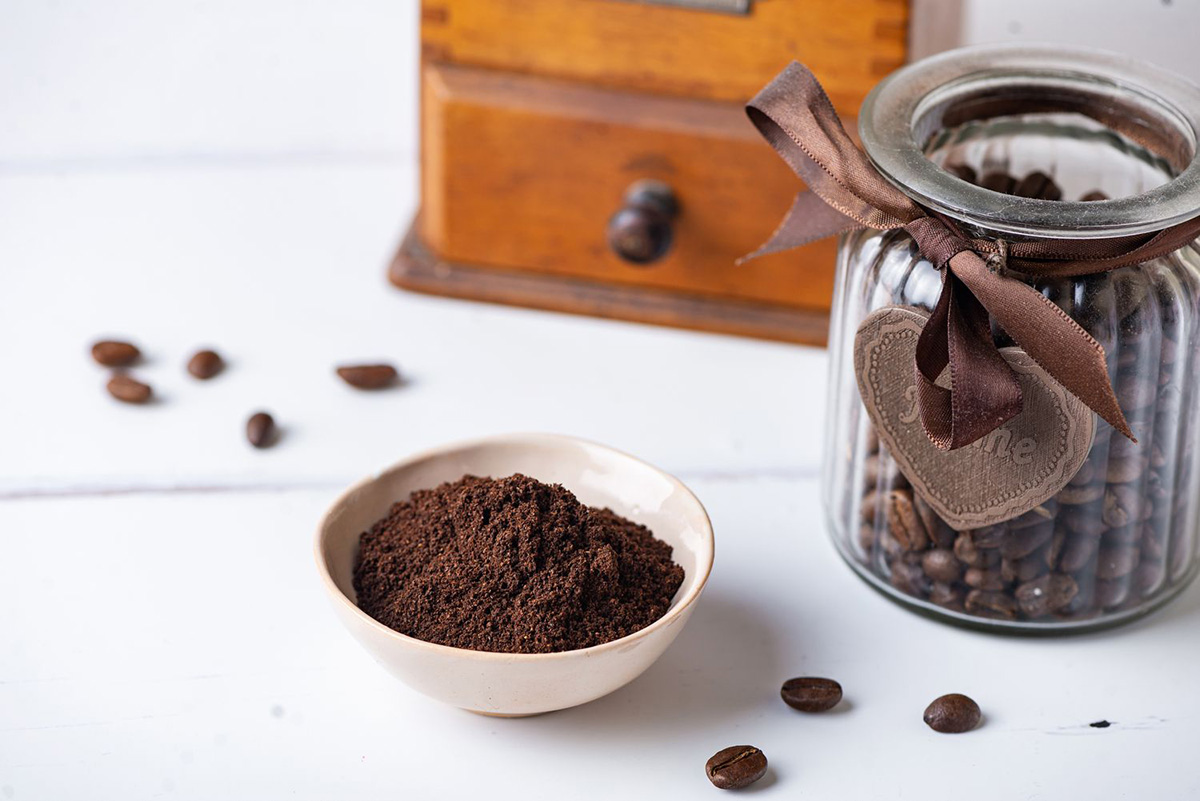

0 thoughts on “How To Store Fresh Ground Coffee”